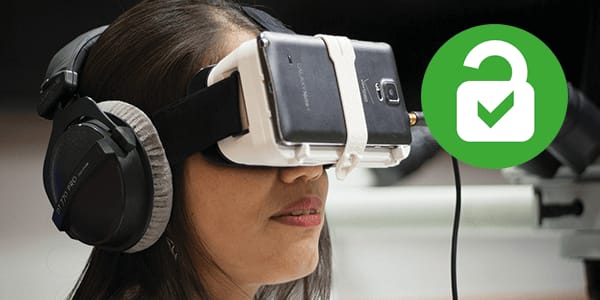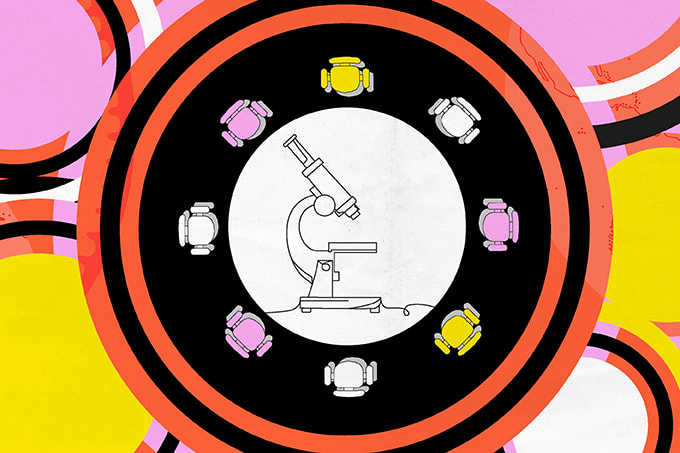Pathologists’ assistants are ideally qualified for leadership, organizational, and operation management roles in the lab. The Panel of National Pathology Leaders (PNPL), in recognition of this fact, supports a Pathologists’ Assistants in Nontraditional Roles Networking Team that empowers its members to explore and fulfill their potential.
What’s more, the operational oversight of pathologists’ assistants means they are well placed to drive process improvement. With that in mind, let us head on over to the surgical pathology gross room, where the PNPL Networking Team has been investigating the effect of process improvements on efficiency, productivity, and error reduction.
Shelley Zaremba, Pathologists’ Assistant at Pathology Consultants of New London, and Heather Gaburo, Technical Director, PNPL, took time out to fill us in on the group’s findings.

Credit: Supplied by Interviewees
What are the aims of the PNPL’s Pathologists’ Assistants in Nontraditional Roles Networking Team?
Heather Gaburo: The team was created to support pathologists' assistants working in nontraditional roles. Pathologists’ assistants are primed for leadership roles, though finding mentorship and support has historically been difficult. We discuss current practice challenges and share solutions and outcomes. We also bring in experts to present on timely topics like competency assessments, career prospects, and process improvements. We are working to develop an incentive plan for pathologists’ assistants and to better understand the fair market value of non-salary benefits that may help with recruitment and retention.
How did the study into process improvements in the gross room come about, and how was it conducted?
Shelley Zaremba: PNPL approached me with the specific topic of gross room process improvements. This is a topic that our lab is continually reviewing – and one that I am personally interested in and passionate about. I drew on my personal experience working in large corporate labs and community hospitals, as well as teaching graduate lab science courses, to compile actual scenarios of real-life issues and solutions that occur in the gross room. Most of the topics presented to the PNPL networking team were situations I had experienced and descriptions of how my team worked together to not only correct the issue but improve the process moving forward.
What were the main findings from your study on process improvements in the gross room?
SZ: Overall, we found that standardizing a process – be it the use of tools or creating a uniform procedure – ultimately leads to increased efficiency and decreased errors, cost, and waste. The end product (or task) is one that delivers a constant and reliable result.
We also noted that where a process can be automated, the benefits are similar to those of standardization in terms of increased efficiency and decreased waste – particularly, with regard to staff time and resources. Of these, the largest enhancement pertains to decreasing (if not eliminating) human error. An example is the use of barcodes, which have dramatically reduced errors while increasing efficiency and productivity within the lab.
Another aspect looked at smaller components of the workflow process, such as organization and communication, which are often overlooked but could prove the ultimate downfall. Good organization lends itself to a clean, safe, and efficient work environment, while effective communication ensures errors and waste are kept at a minimum. Employing various methods of communication that are easily accessible will encourage staff to maintain open channels and work effectively with each other.
It is also worth noting that implementing process improvements is only the first step. Quality metrics must be tracked and evaluated in order to determine if the improvements are, in fact, improving workflow processes.
What process improvements have you implemented in your own lab, and what difference have they made?
SZ: With patient safety and errors, one of the biggest improvements made in our gross room was automating and enhancing the processor log. By matching the specimens loaded onto the processor with those recorded within the laboratory information system (LIS), mislabeled, miscoded, and potentially lost tissue sample errors are caught sooner – ideally same day – and rectified while same shift staff are still on site.
For efficiency in processing and billing, utilizing the LIS to standardize and automate gross specimen protocols has been another big impact improvement. Our pathologists can now expect uniformity in specimen handling as well as consistent (and automatic) billing charges applied.
How were the findings received by the PNPL Pathologists’ Assistant Networking Team?
HG: The presentation was well received, with insightful questions leading to a discussion on building awareness around how certain process changes may impact molecular testing and patient care.
What advice would you give to pathologists’ assistants looking to expand their role in the lab?
HG: Ask to help with projects. Find a mentor – that could be either a pathologists’ assistant or a pathologist, depending on the project. Take lab management or leadership courses.
SZ: Definitely get involved. But – to that point – know your strengths. Expanding your role is also about advocating for yourself and your skills. If you see a need in your institution, go for it! And never stop learning. Your knowledge is your most valuable, and indispensable, asset.




